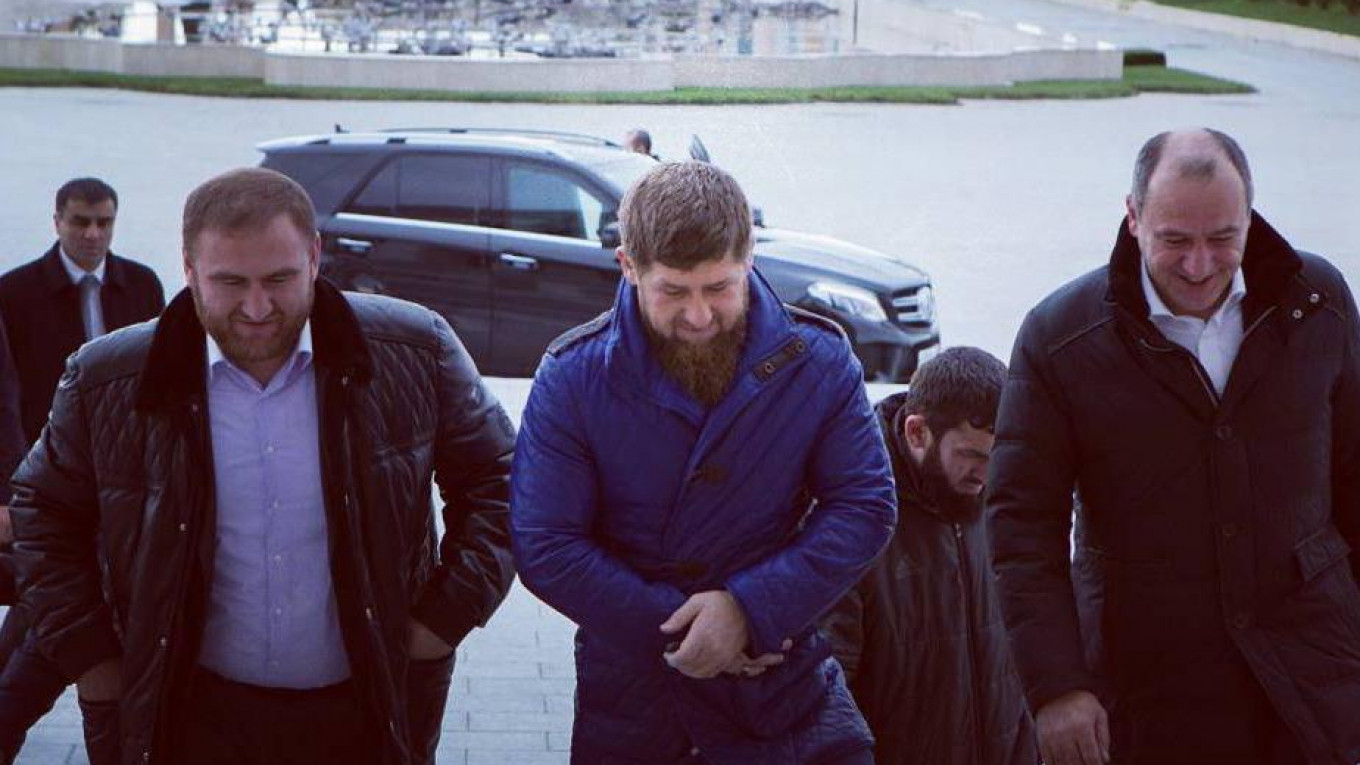Months after complaining publicly to President Vladimir Putin about Chechen ruler Ramzan Kadyrov, a man living in the Chechen village of Kenkhi has disappeared, according to the Dozhd television network.
Earlier this year in April, Ramazan Dzhalaldinov filmed a video appeal to Putin, describing the corruption of local officials, who he said have robbed people of monetary compensation sent by the federal government for destruction wrought in Moscow’s military campaigns in the 1990s.
For more about Putin and Kadyrov, see: Reporters Without Borders Declares Putin and Chechnya's Ruler to Be 'Enemies of the Press'
A correspondent from Dozhd traveled to Kenkhi and spoke to several locals who confirmed Dzhalaldinov’s allegations. Chechen police later detained and interrogated the people who talked to the Dozhd reporter.
In mid-May, the website Chernovik.net reported that masked persons burned down Dzhalaldinov’s home, though Ramzan Kadyrov denied these claims, saying Dzhalaldinov burned down his own home and sent his family away from Chechnya, “in order to open the door to Europe.”
What upsets Chechnya's ruler? See: Ramzan Kadyrov Rails Against Budget Cuts
Weeks after this incident, Dzhalaldinov publicly apologized to Kadyrov. The apology was published on the state television network’s website, where the villager said, “I’m sorry. It was a mistake — a terrible mistake.”
According to Dzhalaldinov’s relatives, he planned to leave Chechnya on Nov. 3, following an injury sustained during a home construction project. Before he could leave, however, Dzhalaldinov and his son were temporarily detained by police, who confiscated their passports and mobile phones. Sources tell Dozhd that Dzhalaldinov disappeared the next day, and local police are apparently looking for him now.
A Message from The Moscow Times:
Dear readers,
We are facing unprecedented challenges. Russia's Prosecutor General's Office has designated The Moscow Times as an "undesirable" organization, criminalizing our work and putting our staff at risk of prosecution. This follows our earlier unjust labeling as a "foreign agent."
These actions are direct attempts to silence independent journalism in Russia. The authorities claim our work "discredits the decisions of the Russian leadership." We see things differently: we strive to provide accurate, unbiased reporting on Russia.
We, the journalists of The Moscow Times, refuse to be silenced. But to continue our work, we need your help.
Your support, no matter how small, makes a world of difference. If you can, please support us monthly starting from just $2. It's quick to set up, and every contribution makes a significant impact.
By supporting The Moscow Times, you're defending open, independent journalism in the face of repression. Thank you for standing with us.
Remind me later.






